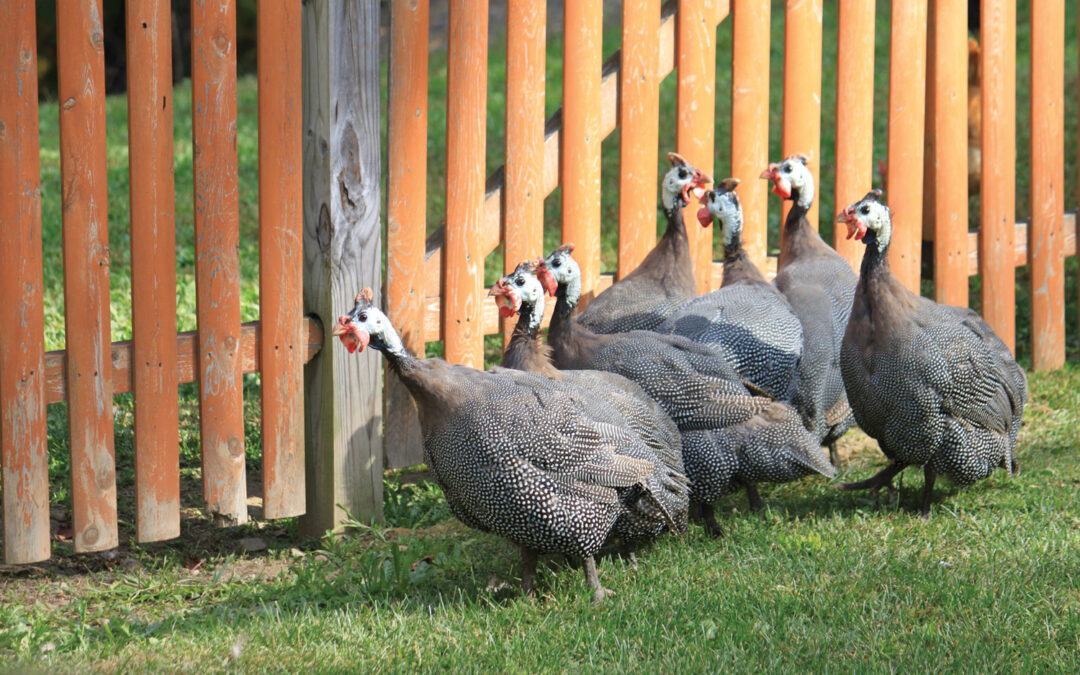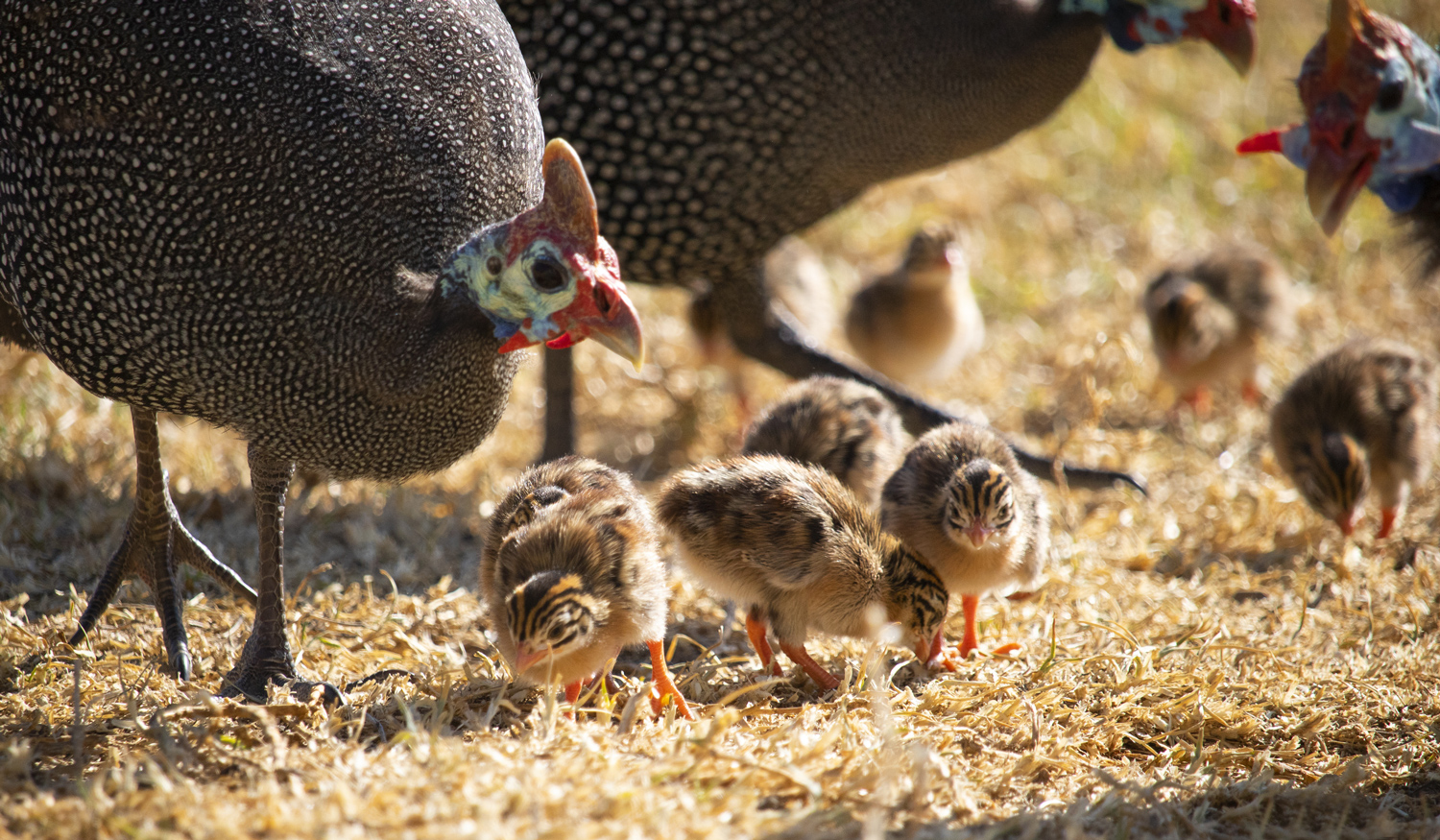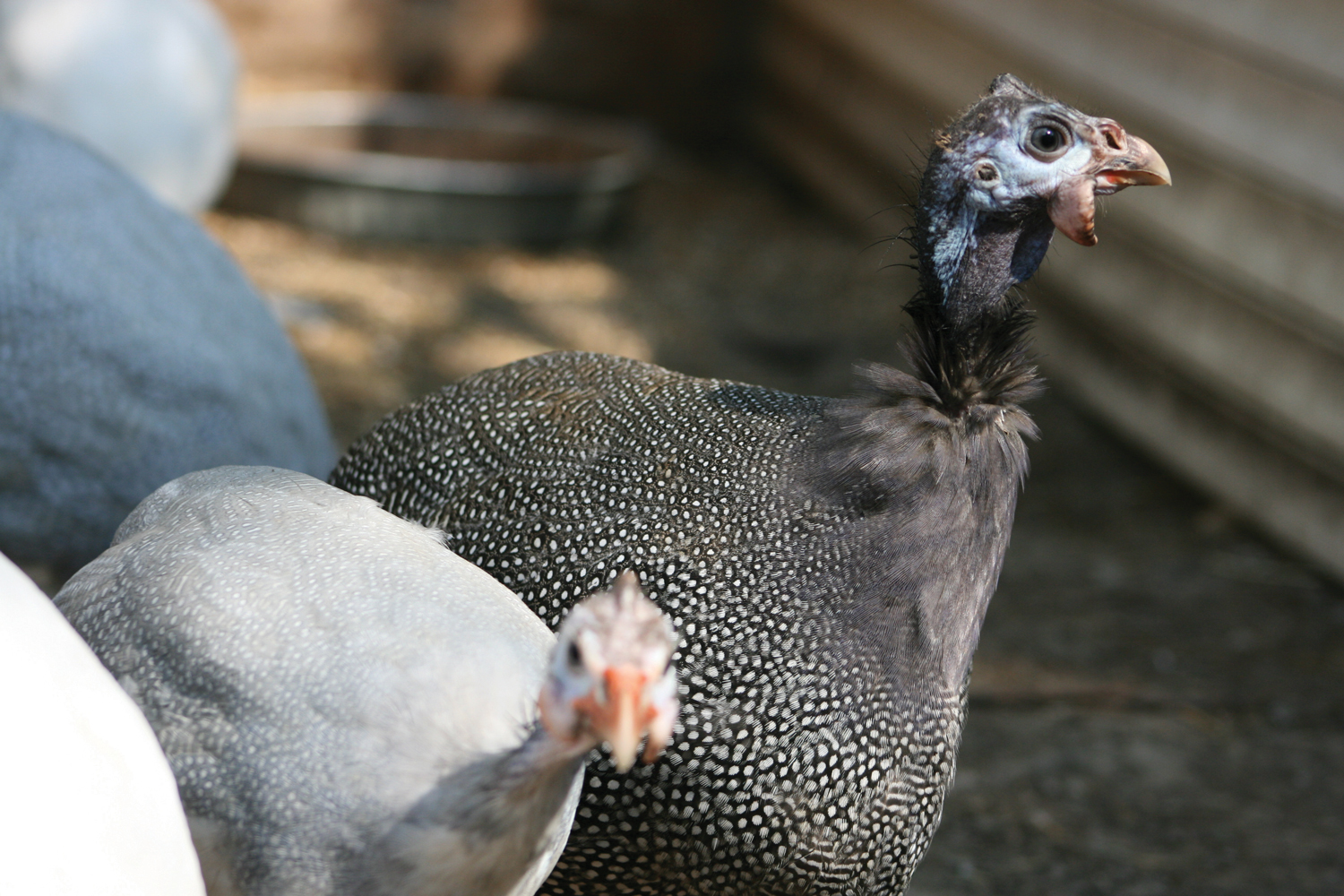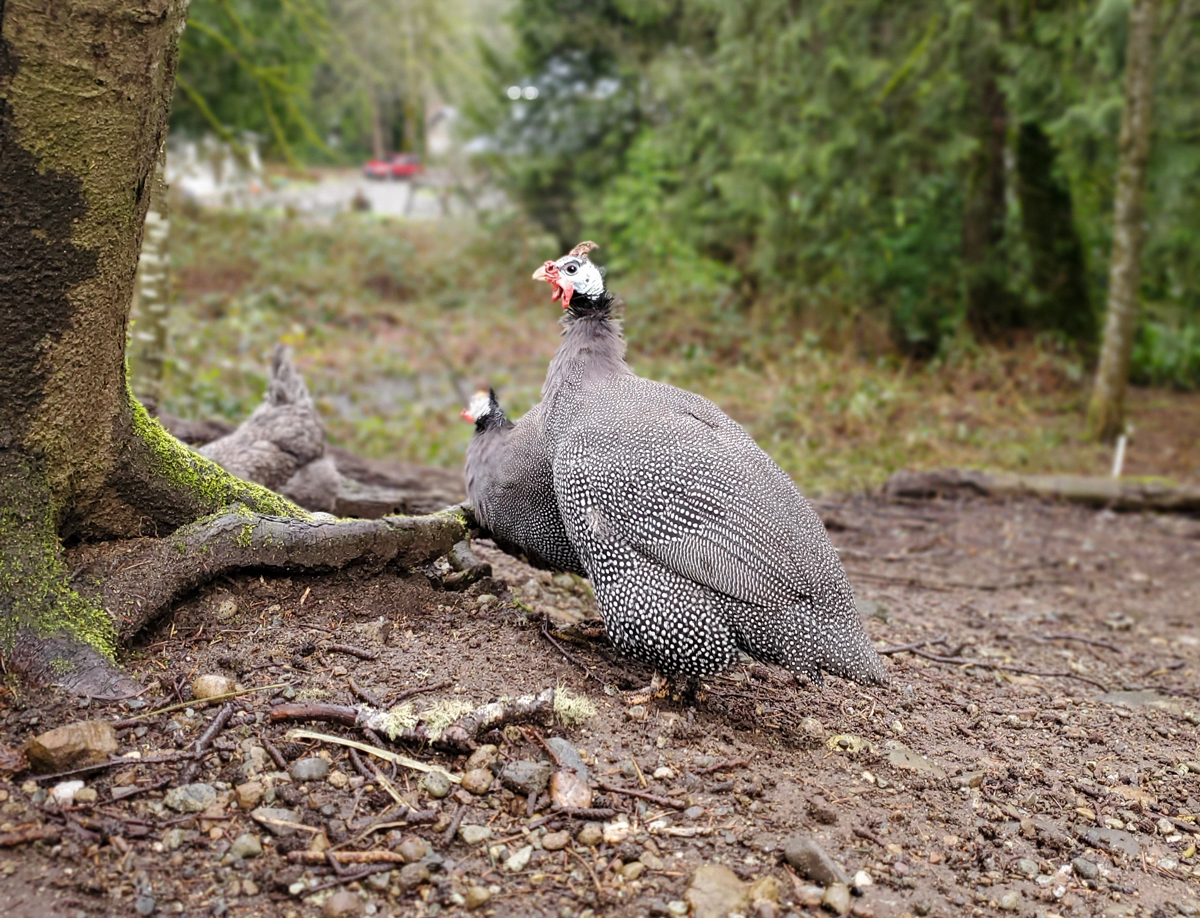There are many benefits to raising guinea fowl, and these crazy looking birds are ideal for almost every homestead with acreage. However, one must first learn how to properly care for guinea fowl before bringing them home.
Raising Guinea Fowl
Six years ago, I brought our first guinea fowl onto our property. Little did I know then that I would have an instant love/hate relationship with these crazy birds. Homesteaders often rush into getting guinea fowl, and some people end up becoming quite frustrated with the birds. Therefore, it is important that you fully understand what you are getting yourself into before taking the leap into the world of guinea fowl.
These birds have a mind of their own, and no amount of training will tame this breed of fowl. The following tips will help you to better understand guinea fowl and appreciate their many purposes.
Guinea Keets
Guinea hens are excellent broodies and will faithfully sit on a clutch of eggs until they hatch. Unfortunately, they do not make the best mothers. Newly hatched keets (guinea chicks) are quickly forced to learn how to keep up in order to survive. Many individuals who raise guineas will often catch the keets once they have hatched and brood them on their own in order to ensure the birds’ survival.
I have been known to take fertilized guinea eggs and allow a broody chicken hen to hatch them. If I do not have a broody at the time, I will place them into an incubator and raise them in a brooder in the coop until they are old enough to be incorporated into my main flock.
Housing
Believe it or not, guineas can be trained to return to roost and lay their eggs in a coop. The easiest way to do this is to brood them in the space you want to house them. For those using a broody chicken hen to raise keets, this process is extremely easy. The broody will return to the coop nightly, teaching the keets to do the same. Because guinea hens raised by a broody chicken are familiar with the coop, they will often lay in the coop as well. They will occasionally lay in nesting boxes, but are more likely to choose a spot in the straw on the coop floor.
Run Requirements
Individuals raising guinea fowl readily admit that these birds do not do well in confinement, especially in a small run. When constructing a run, a minimum of 10 square feet per bird is necessary. However, I always advise those keeping guineas in a run to go with 15 to 20 square feet per bird. Guinea fowl are always on the move, so this extra room will help them burn energy and stay out of trouble.
Free Ranging
As mentioned above, guinea fowl are very active birds. Generally, a still guinea means they are laying an egg, sick, or roosting for the evening. Allowing your guineas to free range gives them the space they need, preventing them from becoming bored and aggressive.
With free ranging your guineas comes the risk of losing them to predators, or the possibility of them roaming off of the farm. I have been able to prevent our guinea fowl from roaming off our property by allowing a chicken to brood them.
Pest Control
Many raise guinea fowl for their ability to control the tick (especially deer tick), flea, and mosquito populations on their property. These birds will also keep grasshoppers, crickets, slugs, and snakes at bay. Basically, they will consume anything small enough to swallow, making them an ideal form of natural pest control.
A Natural Alarm System
Are you looking for an alarm system for your property? Well, look no further than a couple of guinea fowl! Guineas have three calls: a gentle chirping used when they are calm, a louder call used to communicate with each other, and a high-pitched panic screech to alert others when a predator is present.
Our dogs, as well as the dogs on properties near us, have been trained to note the various calls of our guinea fowl. Once a guinea releases its high-pitched panic screech, the dogs are alerted that they need to protect the flock. It has been quite interesting to watch the interactions between the guineas and dogs.
However, in addition to alarming their keepers and other animals of a potential predator in the area, they will also alert you that the UPS man is coming, that a leaf fell off a tree, or that other members of the group have strayed too far away for their liking. This high-pitched screech is the primary reason why people dislike guinea fowl. Many people find their constant calling to be rather annoying.
Meat, Eggs, and Feathers
It surprises people when I share that guinea fowl meat is incredible. Guineas have very little fat, and their meat is tender, rich, and dark. They are excellent roasted or added to stews, curries, and soups.
Guineas are seasonal layers and lay eggs that are on the smaller side. The egg shell is as hard as a rock and will require a good whack on a hard surface to break through to the rich yolk. Guinea eggs contain more yolk than whites, making them perfect for homemade egg noodles and fried egg sandwiches.
Their beautiful polka dotted feathers are prized and used for crafting, jewelry, and making hackles for fly fishing.
An Interesting Fact
A group of guineas is not called a flock, but is instead known as a rasp, confusion, or mob. After reading everything mentioned here, can you guess why? These birds are absolutely crazy and loud, but they are one of the best creatures to have on a larger homestead or farm because of their many wonderful qualities.

Ann Accetta-Scott is a homesteader in Tennessee raising poultry, goats, cows and rabbits. She is an educator and encourages those who are seeking to live a more sustainable lifestyle. Ann is also the face behind the website A Farm Girl in the Making and author of The Farm Girl's Guide to Preserving the Harvest.




